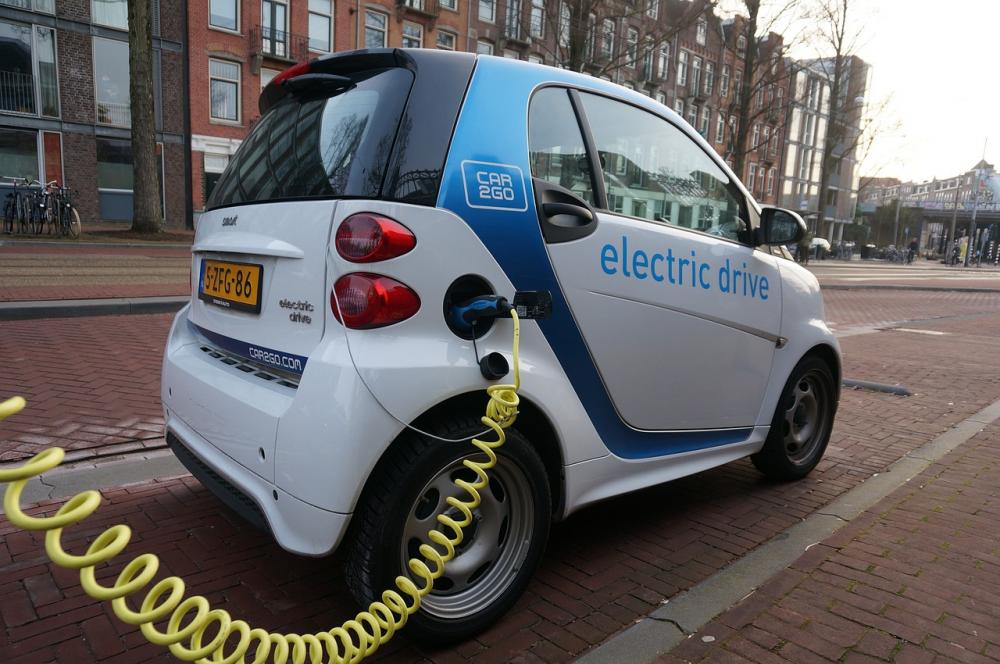
Are you an electric vehicle driver planning to buy a newly built home? All new homes and buildings in the UK will be required by law to provide and install electric vehicle charging points. New-build supermarkets, workplaces and buildings undergoing major renovations will also come under the new law. This decision comes as a further step in the switch to electric vehicles by 2030, when the sale of new petrol and diesel cars will be banned.
This is great news for any electric vehicle owners that are planning to move into a newly built home. However, what if your building is older and you don’t have a charging station installed? Actually, there are a few convenient and easy solutions to this that you will find in this article.
How is the plan for new buildings going to roll out?
From next year developers of new buildings and commercial buildings, such as supermarkets, offices and shopping centers will be required to install electric vehicle charging points for their customers.
The government expects this new requirement to lead to 145,000 new charging points each year. Buildings that are currently undergoing renovations and have more than 10 parking spaces are also included in this new measure.
Electric car sales in the UK
As it can be seen from this graph, electric car sales in the UK are growing, with about 10% of cars sold in 2020 being electric, up from 2.5% in 2018. This figure is expected to further grow as we get closer to 2030 when the sale of new petrol and diesel cars will be banned in the country.
The move to electric vehicles is part of the UK's strategy to meet its net zero climate targets, with cars and taxis accounting for 16% of UK emissions in 2019. Several major car manufacturers, such as Jaguar and Volvo plan to go all electric from 2025 and 2030 and Ford has promised that all vehicles sold in Europe will be electric by 2030.
Further investments in electric vehicle infrastructure
As part of the government’s bid to reach net zero by 2050, almost 26,000 publicly available electric vehicle charging devices have been installed, including 4,900 rapid ones. A total of 250,000 points in homes and workplaces have already been put in place for use.
What if your building is older and doesn't have a charging point?
If you live in a building that does not have a charging point installed, there are still many convenient solutions and ways to charge your electric car. You can even apply for grants that will help you finance the installation of a charging station at your home.
The main thing that prevents people from buying an electric car is the fear of not being able to charge whenever they need and that they might end up in the middle of nowhere with their car. However, that should not be an issue, because there are plenty of charging points available now all around the UK.
Installing an EV charging station at home
Charging your EV at home can be a convenient solution. There are green energy suppliers that offer good tariffs for customers that own electric cars. First, you need to install a charging station at your home, if you don’t have one already. If you are planning to do so, you can benefit from the government's Electric Vehicle Homecharge Scheme, which is a 75% contribution to the price of installation and up to £350.
EV charging station on the street
There are around 42,000 charge points across England in over 15,500 locations. Average electricity rate in the UK is around 17p per kWh. Therefore, to charge a 60kWh electric car, it will cost between £9.00 and £9.90 and for 200 miles. Depending on the charging station and the car, you can fully charge your car in a few hours or less. For example, for a typical electric car with 60kWh battery, it takes around 7-8 hours to charge with a 7kW charging point. If you use a rapid charger with 50kW, you can add up to 100 miles in just 35 minutes.
It is possible to find free stations around supermarkets, shopping centers, hotels and parkings. However, there could be a limit on the time for charging or you might need to be a customer in the supermarket, for instance.
Charging stations on highways
You can find charging stations on highways, and the good thing about them is that most of them should be either the fast or the super fast charging points that will fill up your car in no time. For instance, the green energy provider Ecotricity, installed rapid charging in 96% of motorway service stations.